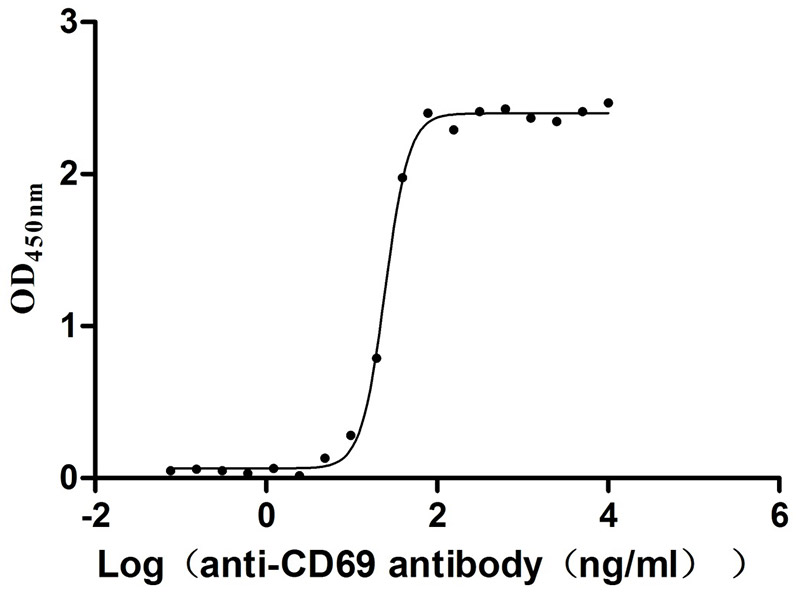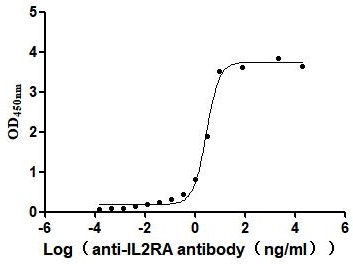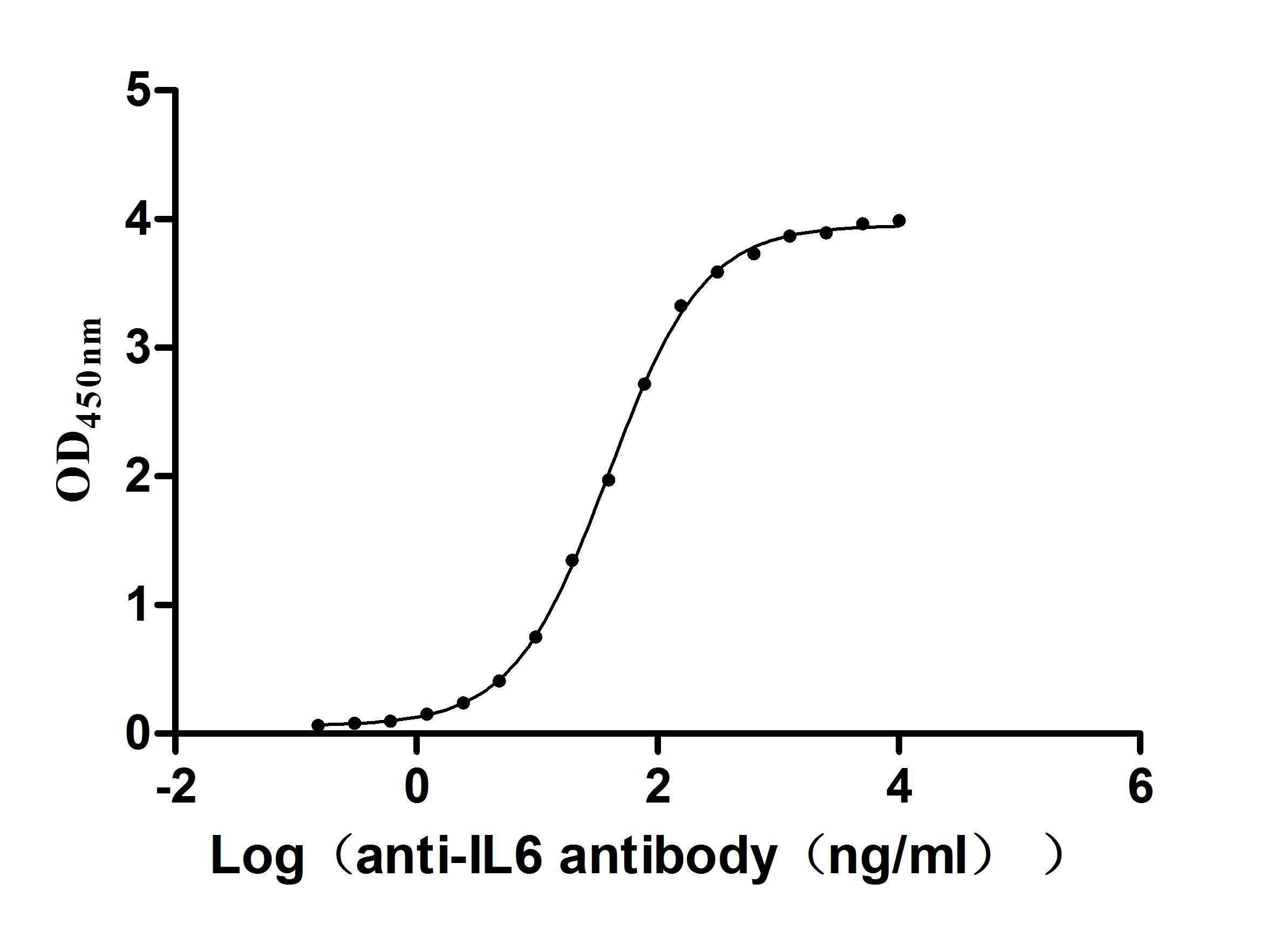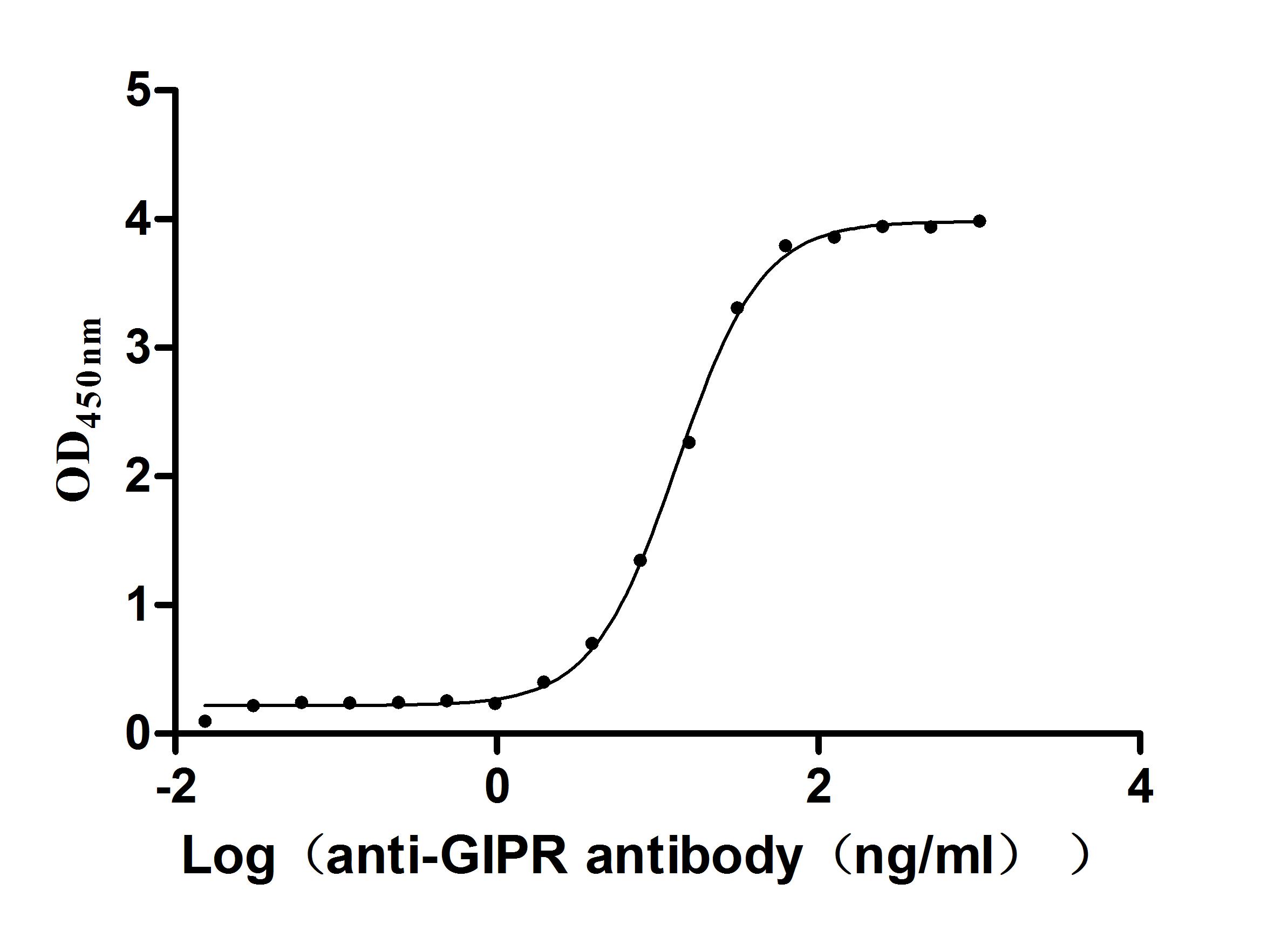Recombinant Human Ubiquitin carboxyl-terminal hydrolase 28 (USP28)
-
中文名称:人USP28重组蛋白
-
货号:CSB-YP850427HU
-
规格:
-
来源:Yeast
-
其他:
-
中文名称:人USP28重组蛋白
-
货号:CSB-EP850427HU
-
规格:
-
来源:E.coli
-
其他:
-
中文名称:人USP28重组蛋白
-
货号:CSB-EP850427HU-B
-
规格:
-
来源:E.coli
-
共轭:Avi-tag Biotinylated
E. coli biotin ligase (BirA) is highly specific in covalently attaching biotin to the 15 amino acid AviTag peptide. This recombinant protein was biotinylated in vivo by AviTag-BirA technology, which method is BriA catalyzes amide linkage between the biotin and the specific lysine of the AviTag.
-
其他:
-
中文名称:人USP28重组蛋白
-
货号:CSB-BP850427HU
-
规格:
-
来源:Baculovirus
-
其他:
-
中文名称:人USP28重组蛋白
-
货号:CSB-MP850427HU
-
规格:
-
来源:Mammalian cell
-
其他:
产品详情
-
纯度:>85% (SDS-PAGE)
-
基因名:USP28
-
Uniprot No.:
-
别名:Deubiquitinating enzyme 28; KIAA1515; Ubiquitin carboxyl terminal hydrolase 28; Ubiquitin carboxyl-terminal hydrolase 28; ubiquitin carboxyl-terminal hydrolase 28 variant 1; Ubiquitin specific peptidase 28; Ubiquitin specific processing protease 28; Ubiquitin specific protease 28; Ubiquitin thioesterase 28; Ubiquitin thiolesterase 28; Ubiquitin-specific-processing protease 28; UBP28_HUMAN; USP 28; USP28; USP28 protein
-
种属:Homo sapiens (Human)
-
蛋白长度:Full length protein of Isoform 3
-
表达区域:1-583
-
氨基酸序列MTAELQQDDAAGAADGHGSSCQMLLNQLREITGIQDPSFLHEALKASNGDITQAVSLLTD ERVKEPSQDTVATEPSEVEGSAANKEVLAKVIDLTHDNKDDLQAAIALSLLESPKIQADG RDLNRMHEATSAETKRSKRKRCEVWGENPNPNDWRRVDGWPVGLKNVGNTCWFSAVIQSL FQLPEFRRLVLSYSLPQNVLENCRSHTEKRNIMFMQELQYLFALMMGSNRKFVDPSAALD LLKGAFRSSEEQQQDVSEFTHKLLDWLEDAFQLAVNVNSPRNKSENPMVQLFYGTFLTEG VREGKPFCNNETFGQYPLQVNGYRNLDECLEGAMVEGDVELLPSDHSVKYGQERWFTKLP PVLTFELSRFEFNQSLGQPEKIHNKLEFPQIIYMDRYMYRSKELIRNKRECIRKLKEEIK ILQQKLERYVKYGSGPARFPLPDMLKYVIEFASTKPASESCPPESDTHMTLPLSSVHCSV SDQTSKESTSTESSSQDVESTFSSPEDSLPKSKPLTSSRSSMEMPSQPAPRTVTDEEINF VKTCLQRWRSEIEQDIQDLKTCIASTTQTIEQMYCDPLLRQVE
-
蛋白标签:Tag type will be determined during the manufacturing process.
The tag type will be determined during production process. If you have specified tag type, please tell us and we will develop the specified tag preferentially. -
产品提供形式:Lyophilized powder
Note: We will preferentially ship the format that we have in stock, however, if you have any special requirement for the format, please remark your requirement when placing the order, we will prepare according to your demand. -
复溶:We recommend that this vial be briefly centrifuged prior to opening to bring the contents to the bottom. Please reconstitute protein in deionized sterile water to a concentration of 0.1-1.0 mg/mL.We recommend to add 5-50% of glycerol (final concentration) and aliquot for long-term storage at -20℃/-80℃. Our default final concentration of glycerol is 50%. Customers could use it as reference.
-
储存条件:Store at -20°C/-80°C upon receipt, aliquoting is necessary for mutiple use. Avoid repeated freeze-thaw cycles.
-
保质期:The shelf life is related to many factors, storage state, buffer ingredients, storage temperature and the stability of the protein itself.
Generally, the shelf life of liquid form is 6 months at -20°C/-80°C. The shelf life of lyophilized form is 12 months at -20°C/-80°C. -
货期:Delivery time may differ from different purchasing way or location, please kindly consult your local distributors for specific delivery time.Note: All of our proteins are default shipped with normal blue ice packs, if you request to ship with dry ice, please communicate with us in advance and extra fees will be charged.
-
注意事项:Repeated freezing and thawing is not recommended. Store working aliquots at 4°C for up to one week.
-
Datasheet :Please contact us to get it.
相关产品
靶点详情
-
功能:Deubiquitinase involved in DNA damage response checkpoint and MYC proto-oncogene stability. Involved in DNA damage induced apoptosis by specifically deubiquitinating proteins of the DNA damage pathway such as CLSPN. Also involved in G2 DNA damage checkpoint, by deubiquitinating CLSPN, and preventing its degradation by the anaphase promoting complex/cyclosome (APC/C). In contrast, it does not deubiquitinate PLK1. Specifically deubiquitinates MYC in the nucleoplasm, leading to prevent MYC degradation by the proteasome: acts by specifically interacting with isoform 1 of FBXW7 (FBW7alpha) in the nucleoplasm and counteracting ubiquitination of MYC by the SCF(FBW7) complex. In contrast, it does not interact with isoform 4 of FBXW7 (FBW7gamma) in the nucleolus, allowing MYC degradation and explaining the selective MYC degradation in the nucleolus. Deubiquitinates ZNF304, hence preventing ZNF304 degradation by the proteasome and leading to the activated KRAS-mediated promoter hypermethylation and transcriptional silencing of tumor suppressor genes (TSGs) in a subset of colorectal cancers (CRC) cells.
-
基因功能参考文献:
- The s identified 53BP1 and USP28 as essential components acting upstream of p53, evoking p21-dependent cell cycle arrest in response not only to centrosome loss, but also to other distinct defects causing prolonged mitosis. PMID: 27371829
- USP28 controls activation of both the TP53 branch and the GATA4/NFkB branch that controls the senescence-associated secretory phenotype (SASP) PMID: 29089421
- 53BP1-USP28 cooperation is essential for normal p53-promoter element interactions and gene transactivation-associated events, yet dispensable for 53BP1-dependent DNA double-strand repair regulation. PMID: 27546791
- USP28-53BP1-p53-p21 signaling pathway is also required to arrest cell growth after a prolonged prometaphase. PMID: 27432896
- analysis of centrinone resistance identified a 53BP1-USP28 module as critical for communicating mitotic challenges to the p53 circuit and TRIM37 as an enforcer of the singularity of centrosome assembly. PMID: 27432897
- These results showed that USP28 is overexpressed in human glioblastomas and it contributes to glioma tumorigenicity. PMID: 26209720
- Data indicte that deubiquitinating enzyme USP28 was targeted by microRNA miR-4295. PMID: 25656529
- findings provide a first insight into understanding how the enzymatic activity of Usp28 is regulated by its non-catalytic UBR and endogenous ligands. PMID: 26268556
- identified Usp28 as a c-MYC target gene highly expressed in colorectal cancers, which indicates that USP28 and c-MYC form a positive feedback loop that maintains high c-MYC protein levels in tumors PMID: 24960159
- USP28 has a chain preference activity for Lys(11), Lys(48), and Lys(63) diubiquitin linkages PMID: 25359778
- Usp28 expression was indentified as a independent predictors of survival (P = 0.001) and potentially valuable in prognostic evaluation of bladder cancer PMID: 24347490
- Study reveals a critical mechanism underlying the epigenetic regulation by USP28. PMID: 24075993
- USP28 is not a critical factor in double-strand break metabolism and is unlikely to be an attractive target for therapeutic intervention aimed at chemotherapy sensitization. PMID: 24687851
- USP28 gene expression is down regulated by oxidative stress through the mediation of reactive oxygen species PMID: 23832602
- molecular cloning of USP28 & characterization of alternatively spliced products and tissue-specific isoforms PMID: 11597335
- Using a human cell line that faithfully recapitulated the Chk2-p53-PUMA pathway, we show that USP28 is required to stabilize Chk2 and 53BP1 in response to DNA damage. PMID: 16901786
- High expression levels of USP28 are found in colon and breast carcinomas, and stabilization of MYC by USP28 is essential for tumour-cell proliferation. PMID: 17558397
显示更多
收起更多
-
亚细胞定位:Nucleus, nucleoplasm.
-
蛋白家族:Peptidase C19 family, USP28 subfamily
-
数据库链接:
HGNC: 12625
OMIM: 610748
KEGG: hsa:57646
STRING: 9606.ENSP00000003302
UniGene: Hs.503891
Most popular with customers
-
Recombinant Human C-X-C chemokine receptor type 4 (CXCR4)-VLPs (Active)
Express system: Mammalian cell
Species: Homo sapiens (Human)
-
Recombinant Human C5a anaphylatoxin chemotactic receptor 1 (C5AR1)-VLPs (Active)
Express system: Mammalian cell
Species: Homo sapiens (Human)
-
Recombinant Human Cannabinoid receptor 1 (CNR1)-VLPs (Active)
Express system: Mammalian cell
Species: Homo sapiens (Human)
-
Recombinant Human Claudin-6 (CLDN6)-VLPs, Fluorescent (Active)
Express system: Mammalian cell
Species: Homo sapiens (Human)
-
Recombinant Human Early activation antigen CD69 (CD69), partial (Active)
Express system: Mammalian cell
Species: Homo sapiens (Human)
-
Recombinant Human Interleukin-2 receptor subunit alpha (IL2RA), partial (Active)
Express system: Mammalian cell
Species: Homo sapiens (Human)
-
-
Recombinant Macaca Gastric inhibitory polypeptide receptor(GIPR), partial (Active)
Express system: yeast
Species: Macaca fascicularis (Crab-eating macaque) (Cynomolgus monkey)


-AC1.jpg)
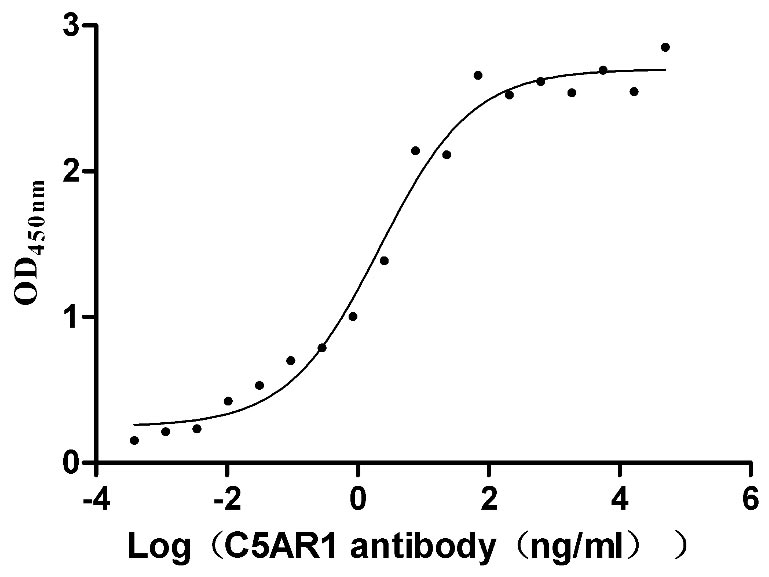
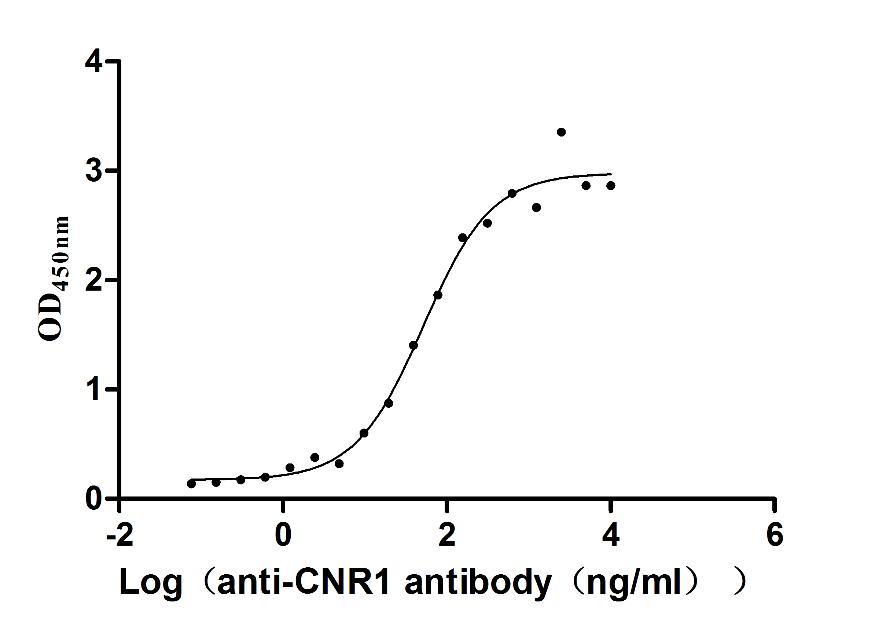
f4-AC1.jpg)
